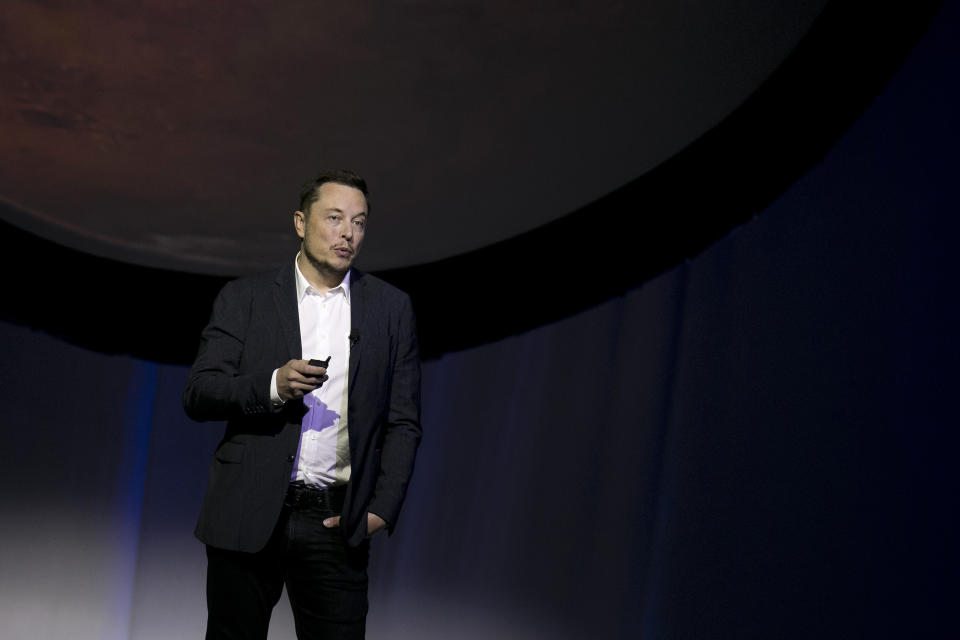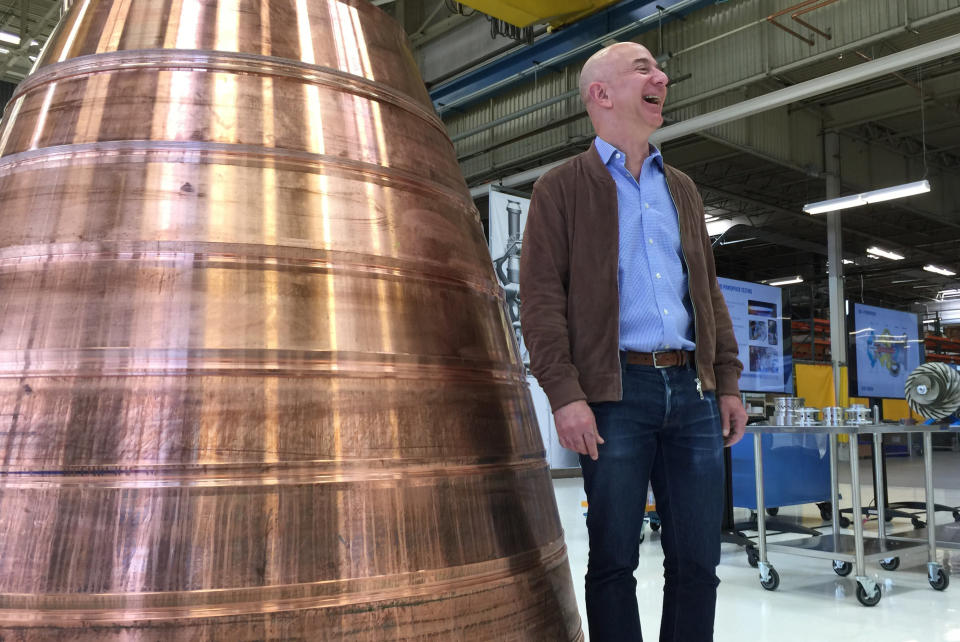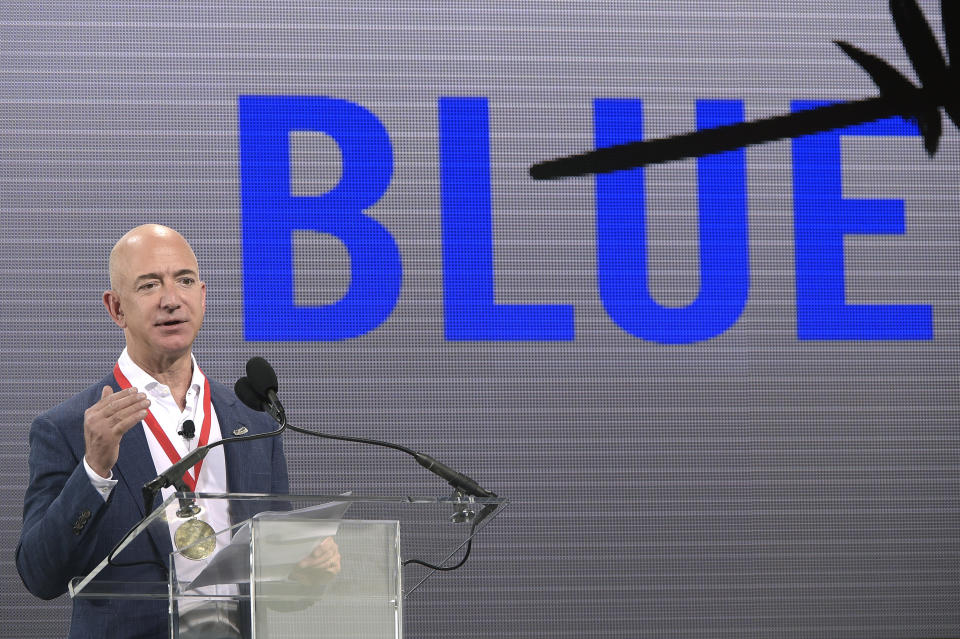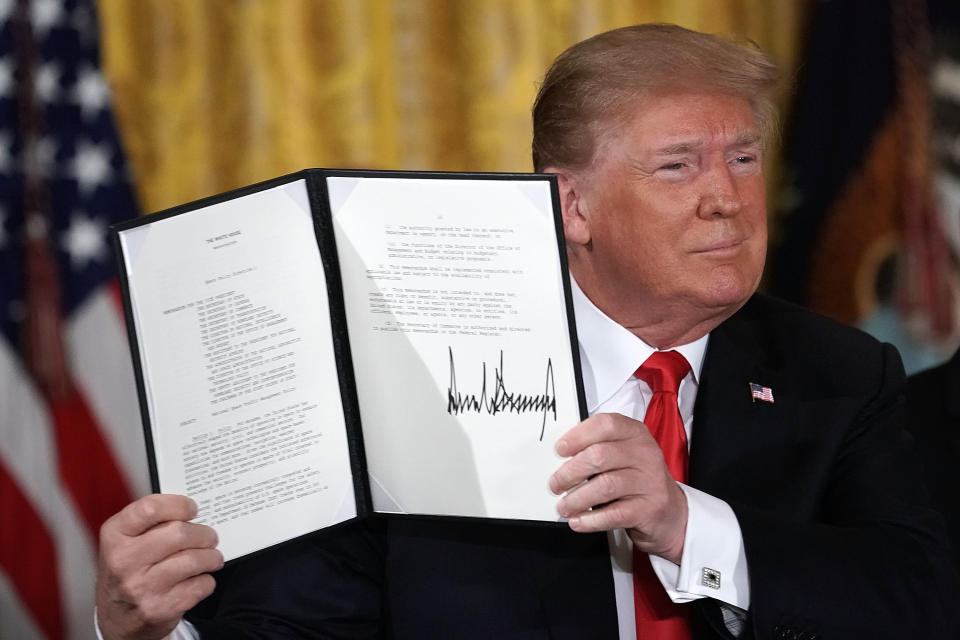Astronaut Scott Kelly weighs in on the Bezos-Musk race to space
The billionaire space race is on, and Elon Musk is winning, according to a former NASA astronaut.
The Tesla and SpaceX chief is locked in a race of sorts with Amazon and Blue Origin CEO Jeff Bezos to be the first to dominate space services — which ranges from sending satellites into orbit to space tourism — and retired astronaut Scott Kelly told Yahoo Finance’s The Final Round that his money was on Musk.
“If I was to pick one over the other, I think Elon is clearly further along now,” said Kelly.
The astronaut, who recently spent 340 days living in space on the International Space Station on a NASA mission to understand how the human body responded to long-duration spaceflights, also added that he has been to both companies’ facilities and has no allegiance to either billionaire.

Musk and Bezos — the biggest names in the nascent commercial space industry (along with Virgin Galactic Founder Richard Branson) — are currently ramping up their efforts in their space ventures. They have already began to provide a range of services from sending satellites to space to supplying the Space Station goods.
Colonial ambitions
In the meantime, the industry is expected to grow to $1.1 trillion by 2040, according to Morgan Stanley, with most of the gains expected from the private sector.
Musk was ahead at this point because of SpaceX’s relationship with the U.S. government, explained Kelly.
“Elon is flying a spacecraft to orbit that docks, rendezvous, and then is berthed to the International Space Station and flies cargo up there, and pretty soon … he’ll be flying people to lower Earth orbit,” said Kelly. “Now the government has been supporting SpaceX in this, we’ve made a commitment ... by cargo and people.”
Odds at betting site MyBookie also favor Musk, giving SpaceX a 76.9% chance of being the first organization to send humans to Mars.
MyBookie’s head oddsmaker David Strauss told Yahoo Finance that “Elon Musk is hell-bent on landing on Mars quickly and wants to colonize Mars by 2024. SpaceX doesn't have to worry about government funding or any political issues. Just a man (Musk) on a mission, and his mission is not complete.”
Strauss also added that while “[SpaceX] still believes [it] will land on Mars by 2024 or sooner. I would bet sooner.”

Going to space has been a passion for Musk.
At a press conference in March, Musk told the audience: “I really believe in the future of space … I think it is important that we become a space-faring civilization and be out there among the stars ... We want the things that are in science fiction novels and movies not be science fiction forever. We want them to be real one day.”
After Musk founded the company in 2002, SpaceX has had some crucial wins, landing government contracts with the U.S. Air Force and several other federal agencies to launch rockets and spy satellites into space.
It also raised $600 million in December to invest in a satellite internet service, which hopes to bring faster internet speeds to rural and suburban locations globally.
But Musk, who’s ultimate plan is to colonize Mars, is now under scrutiny as the Department of Defense reconsiders his security clearances after he smoked marijuana on a podcast.

‘Methodical’ Bezos
Rival Bezos has a different approach to the space race — which could be why he won’t be the winner in this space race, suggested Kelly.
“Jeff Bezos is investing all of his own money as far as I know and you know, taking his time and being very methodical,” said Kelly. “First he’s going to [build up a spacecraft that would have] a sub-orbital capability, but eventually he wants to go to orbit.”
In other words, Blue Origin’s rocket — which is fully reusable and able to carry passengers — basically shot up and fell straight back down again when it was launched in 2015. This is called sub-orbital, and is not the same as getting into orbit, which would require a lot more energy among other things.
Nevertheless, at the time it was launched, Blue Origin was the first to successfully launch and land a suborbital rocket after reaching the edge of space.

Bezos’ interest in space started at age 5 — when we watched teh Apollo 11 moon landing on television. That passion has endured over the years.
In an interview with Wired, a Blue Origin colleague noted that Bezos was very hands on with Blue Origin since its founding in 2000, and that when it came to meetings, “it was almost incomprehensible how technically engaged Jeff was in every part of the discussion.”
While the company has been largely privately funded as Kelly noted, the company has since also won contracts with the U.S. Air Force as well, sharing a $2.3 billion pile with Boeing and Lockheed Martin — as part of the United Launch Alliance — to develop rocket launch systems for national security missions.
Bezos’ ultimate plan is to drastically reduce the cost of flights with reusable space rockets, start taking tourists on regular trips to and from the edge of space (tickets are around $200,000 to $300,000) and to put satellites in orbit.

‘It takes a commitment … beyond political administrations’
For this industry to really take off, Kelly said that consistency is key — especially with politics.
“I think we need to get away from every time we get a new president … [or] Congress, from changing the plan,” said Kelly. “Flying in space, flying in mission, whether it’s to the Space Station … It’s something that’s very complicated and it takes a long time, and it takes a commitment that goes beyond political administrations.”
The current mood is favorable for the industry, with Vice President Mike Pence announcing last week that he wanted the U.S. to “return American astronauts to the moon within the next five years.”
This is a reversal of former President Barack Obama’s cancellation of George W. Bush’s plans to return astronauts to the moon in 2020.
Additionally, President Donald Trump has also been pushing for the creation of a ‘Space Force’ or U.S. Space Command.
But with an election looming, Kelly says, “My hope … is that we can choose a plan ... a way to get there, and keep it over a longer period of time.”
Aarthi is a writer for Yahoo Finance. Follow her on Twitter @aarthiswami.
Read more:
Timeline: The mass exodus of Tesla execs in the last 12 months
UK diver called 'pedo' by Musk could have a strong defamation case
Follow Yahoo Finance on Twitter, Facebook, Instagram, Flipboard, LinkedIn, YouTube, and reddit.


